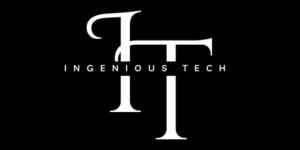Main Topic or Theme
The main theme of “The Skeptic’s Guide to the Universe” is critical thinking and scientific skepticism, encouraging readers to question beliefs, evaluate evidence, and navigate the complex world of information with a rational mindset.
Key Ideas or Arguments
- Scientific Skepticism: Novella emphasizes the importance of approaching claims and information with a skeptical mindset, especially in the age of misinformation.
- Critical Thinking: The book guides readers on how to apply critical thinking skills to assess scientific evidence, debunk myths, and avoid cognitive biases.
- Pseudoscience and Paranormal Claims: Novella explores various pseudoscientific and paranormal phenomena, providing tools to distinguish between genuine science and unfounded beliefs.
Chapter Titles or Main Sections
- Introduction to Skepticism: Novella introduces the concept of skepticism, highlighting its role in scientific inquiry and everyday decision-making.
- Tools of Critical Thinking: This section delves into practical tools and strategies for honing critical thinking skills, essential for navigating a world filled with information.
- Debunking Pseudoscience: Examining popular pseudoscientific claims, Novella exposes the flaws in reasoning and evidence behind them.
- The Science of Skepticism: A deeper exploration of the scientific method and how skepticism contributes to the advancement of knowledge.
- Navigating the Media Landscape: Guidance on evaluating information sources, identifying biases, and navigating the challenges posed by the media.
Key Takeaways
- Developing a skeptical mindset is crucial for navigating a world filled with misinformation.
- Critical thinking skills are tools for assessing claims and making informed decisions.
- Pseudoscience can be debunked through rigorous examination of evidence and logical reasoning.
Author’s Background and Qualifications
Steven Novella is a clinical neurologist, professor, and co-founder of the New England Skeptical Society. His background in neuroscience lends credibility to his exploration of critical thinking and skepticism.
Comparison to Other Books
“The Skeptic’s Guide to the Universe” stands out for its accessibility and practical approach to critical thinking, making it suitable for both skeptics and those new to the subject. It complements other works in the field by providing a comprehensive guide for the general reader.
Target Audience
The book is aimed at a broad audience, from individuals interested in science and skepticism to those seeking practical tools for navigating the modern information landscape.
Reception or Critical Response
The book has received positive reviews for its engaging writing style, clarity, and practical advice. Critics appreciate its balance between depth and accessibility.
Publisher and First Published Date
Publisher: Grand Central Publishing First Published: 2018
Recommendations
- “Demon-Haunted World” by Carl Sagan
- “Why People Believe Weird Things” by Michael Shermer
Biggest Takeaway
Embrace skepticism and cultivate critical thinking skills to navigate the vast sea of information in our modern world.



